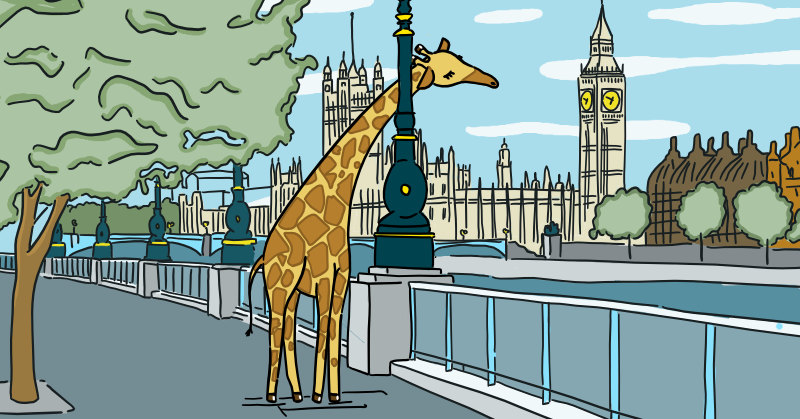Games, Names, Rome, Triage, Cures
Virtual Wrongdoing
Eric Sheng | Practical Ethics | 25th March 2020
Should we feel uneasy when a player does something bad in a video game — for example, torturing a captive? Yes, we should be uneasy, but not necessarily because the bad action taking place in the video game has consequences in the real world. Whether it does or not is matter of debate. The thing that should worry us is what the bad action “presumptively reveals about the player”. We can reasonably assume that the player brings to the game preferences already formed in real life (2,080 words)
Toponymic Subjugation
Peter Trudgill | Standpoint | 25th March 2020
Should we call foreign cities by their foreign names? Or does it add to the richness of life that London, for example, should be Londino to Greeks, Londra to Italians, Londyn to Poles, Londer to Albanians, Lontoo to Finns, Londonas to Lithuanians, and Llundain to Welsh? It may seem respectful to use the local name. But cities with many names in many languages tend to be cities of global and historical importance. We do world-cities a greater honour by preserving their many names than by forgetting them (1,020 words)
The Roman Way Of Warfare
Rebecca Burgess | Strategy Bridge | 25th March 2020
Ancient Rome prevailed by first winning the hearts and minds of its own soldiers. “Any polity can field an army through compulsion or other violent means. What matters more is what makes the average person stay on the battlefield. The Roman Republic motivated its soldiers its by honouring the initiative, strength, discipline, courage and loyalty of individual citizens. This combination of public and private values culminated in the superiority of the Roman legion against the Macedonian phalanx” (2,090 words)
Covid-19, A Retrospective
Jacques Mattheij | 24th March 2020
Fiction. How we may look back on the current pandemic in a couple of years’ time, and what we may have learned. “Only 35% of the population caught the virus. It still springs up now and then when a closely connected group of individuals gets infected. Old people have become a rarity, especially in public. They suffered more than most. It’s hard to meet their eyes, knowing that we live because so many of them died. Triage at the admittance to the ICUs was based on life expectancy and recovery expectancy” (1,200 words)
The Medical Detective
Sandra Hempel | Granta | 24th March 2020
How doctors in Sunderland treated a cholera epidemic in the 1830s. “Betty Short was subjected to a very varied treatment including brandy, laudanum, calomel, cajeput oil, rhubarb, jalap, turpentine, bleeding to eight ounces, a mustard poultice and a turpentine enema. Robert Jordan was also dosed with brandy, laudanum, calomel and turpentine, but in addition he had to endure ammonia, sulphuric ether, scalding bricks on his feet, hands and stomach, and bladders of boiling water on his head” (6,100 words)
Video: Critical Mass | Aujik. A technical exercise in computer simulation of granular movement; which is also a reminder that we can no longer distinguish visually between the real and the artificial (2m 54s)
Audio: Why Toilet Paper? | The Journal. Demand is consistent; the average American uses 57 sheets of toilet paper per day. Supply is plentiful; we hoard only because we think others might do so (18m 58s)
Afterthought:
“You shall know the truth, and it will make you odd”
— Flannery O'Connor
